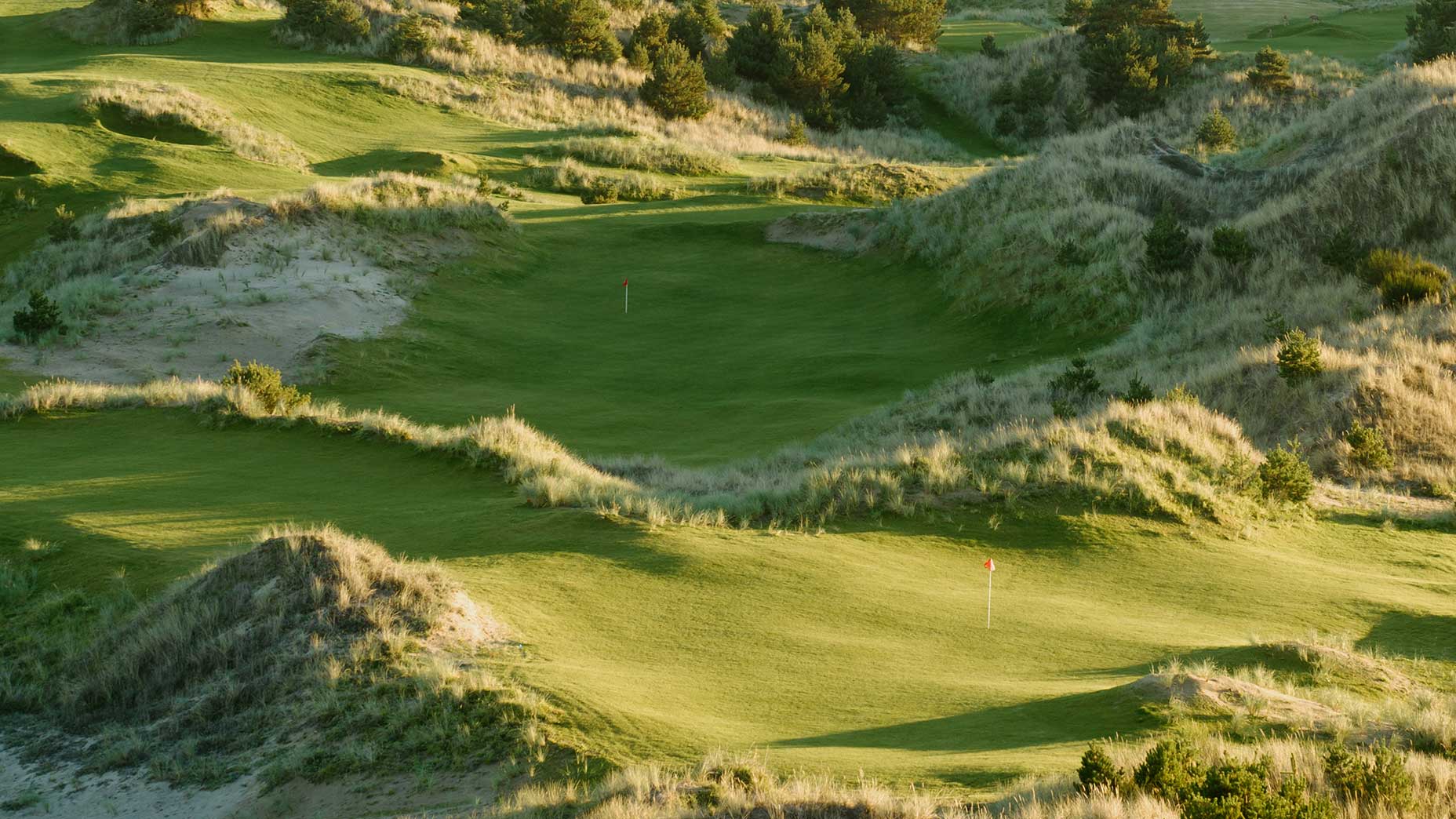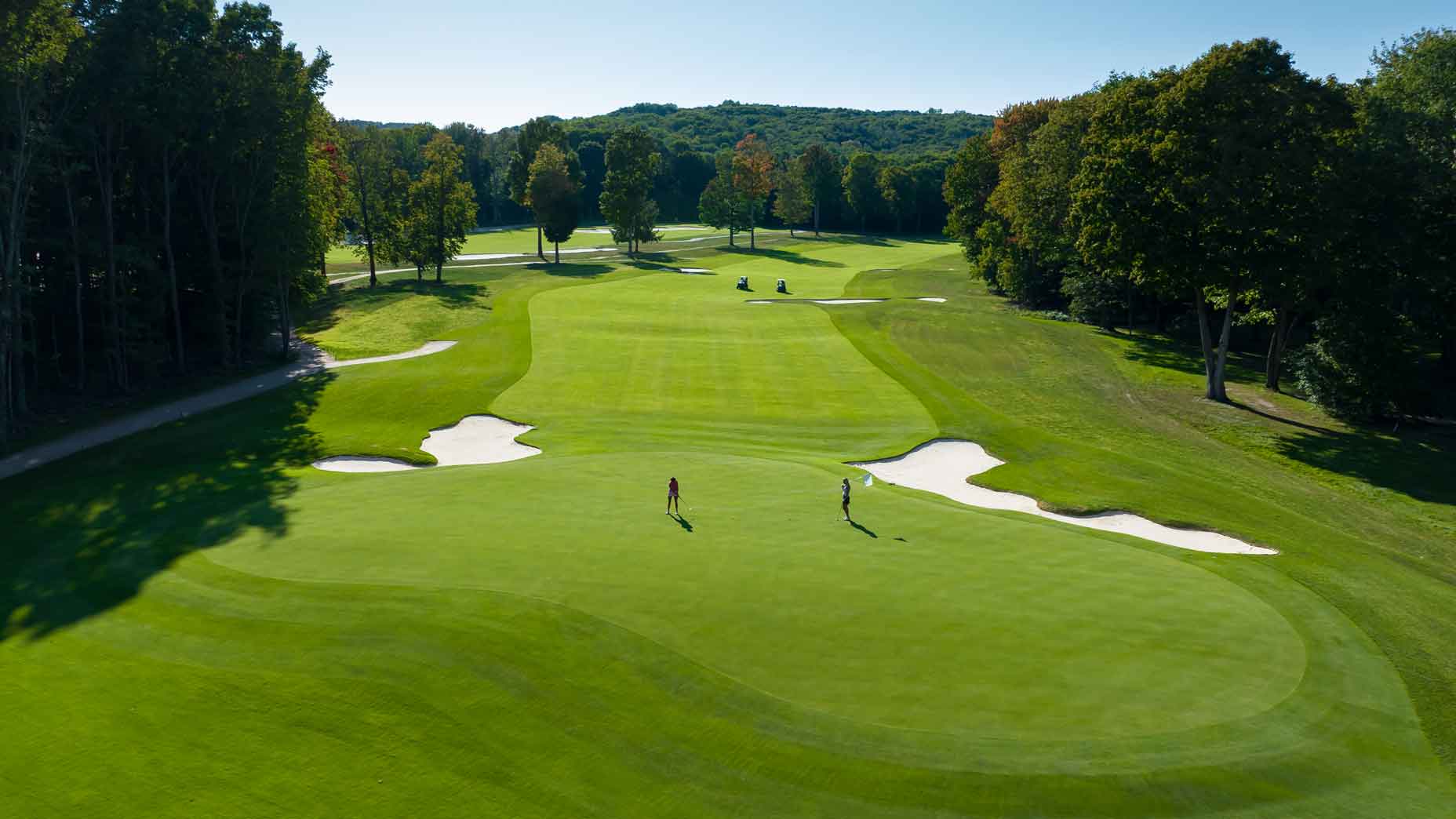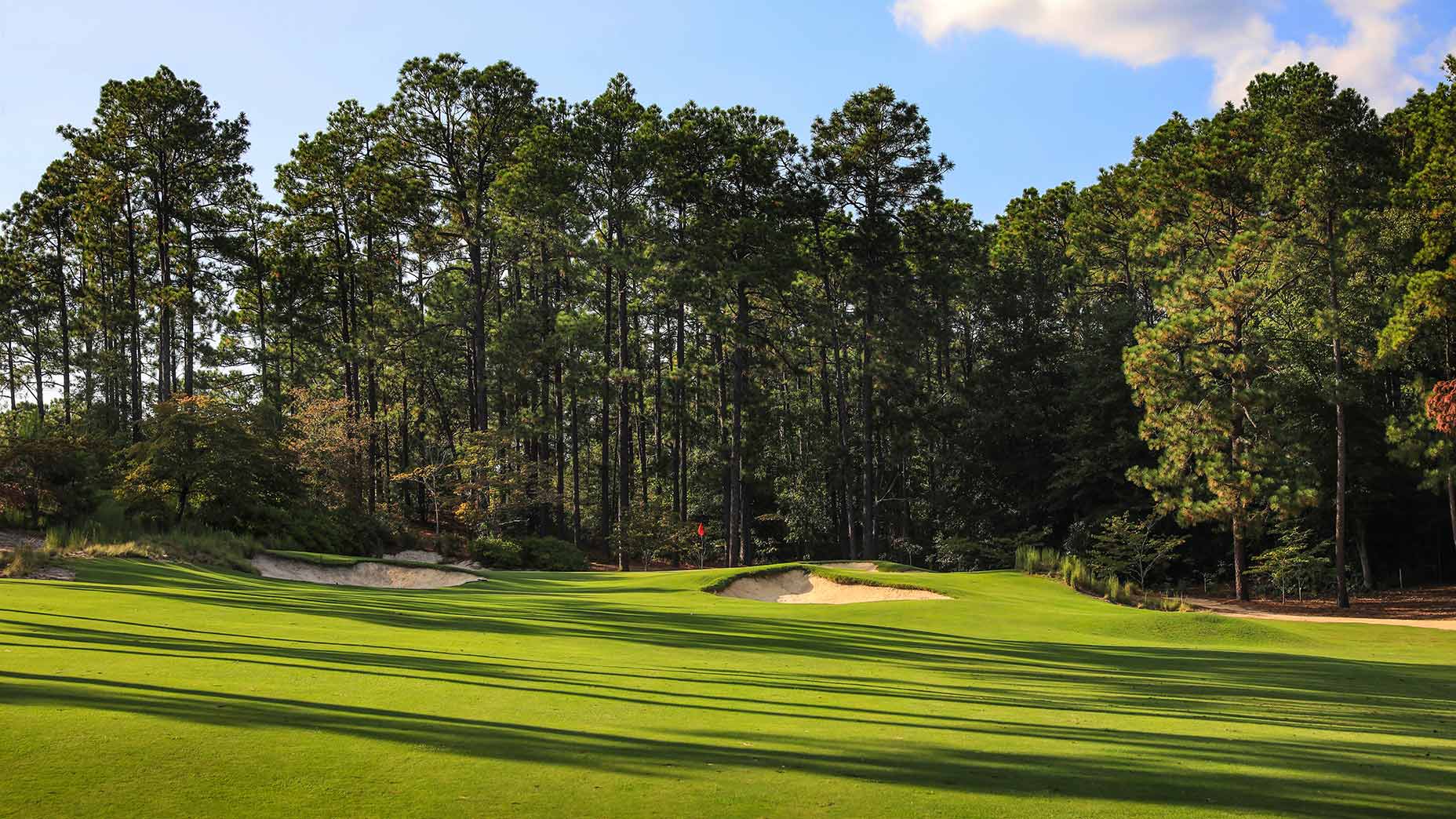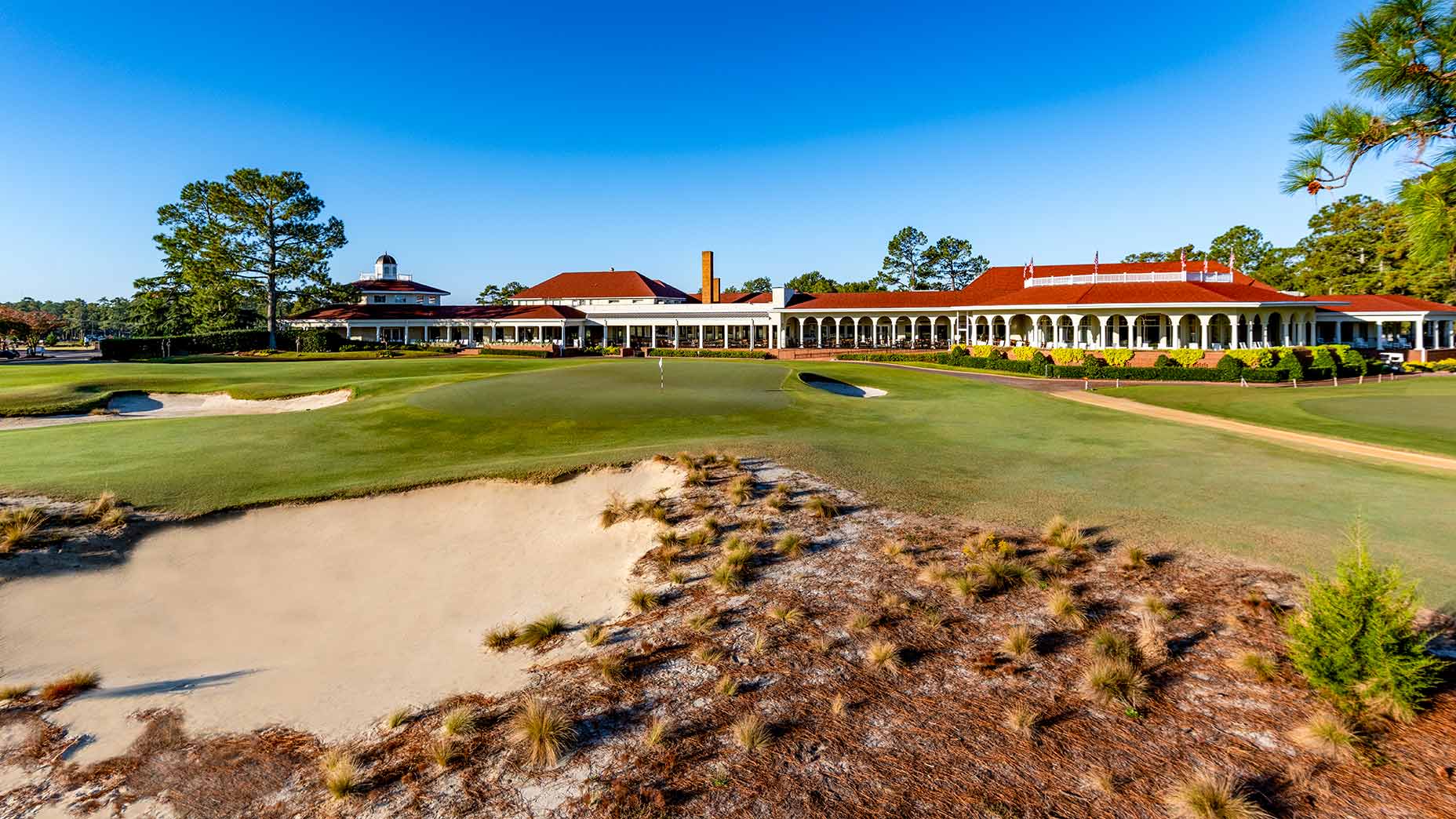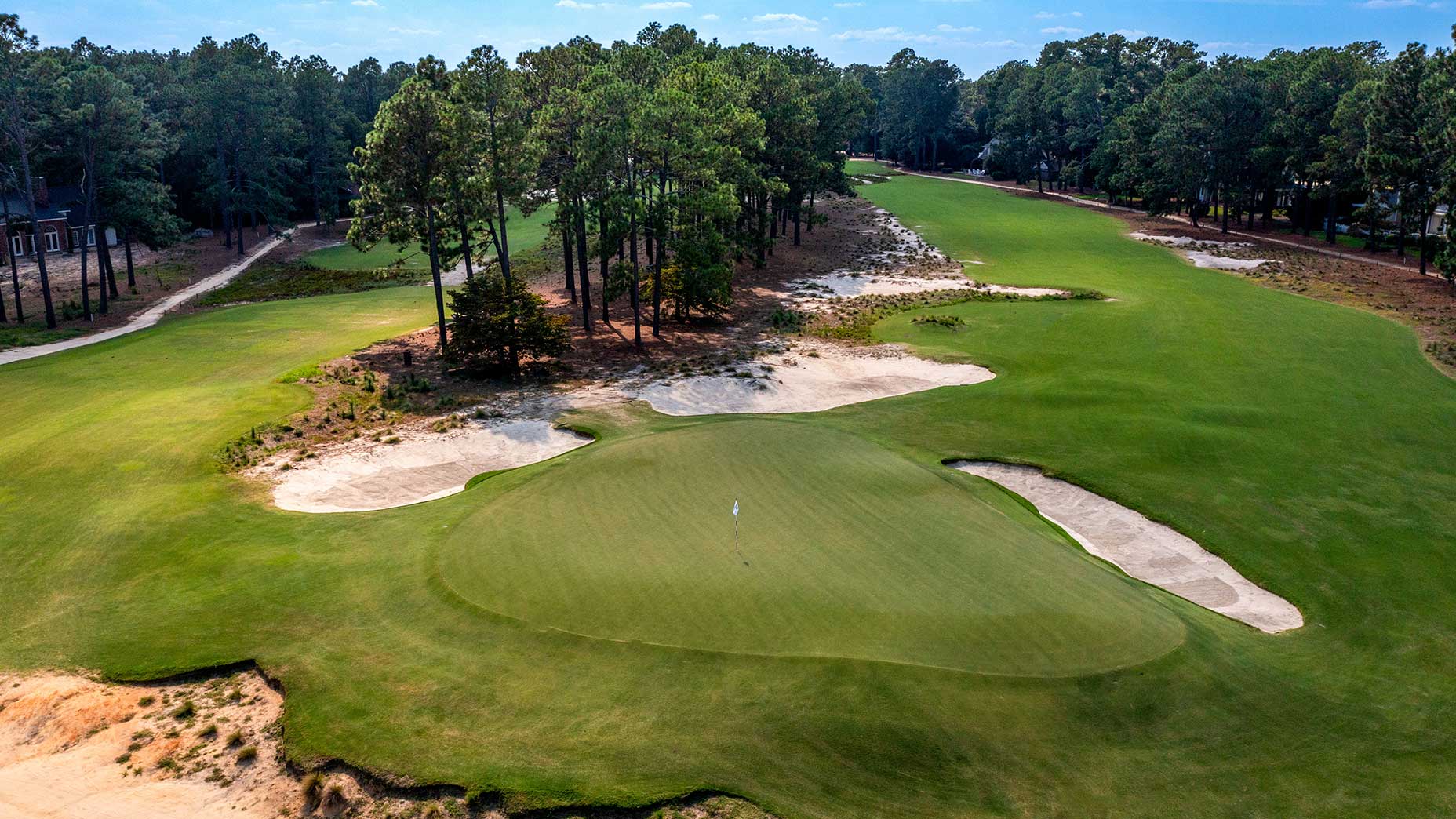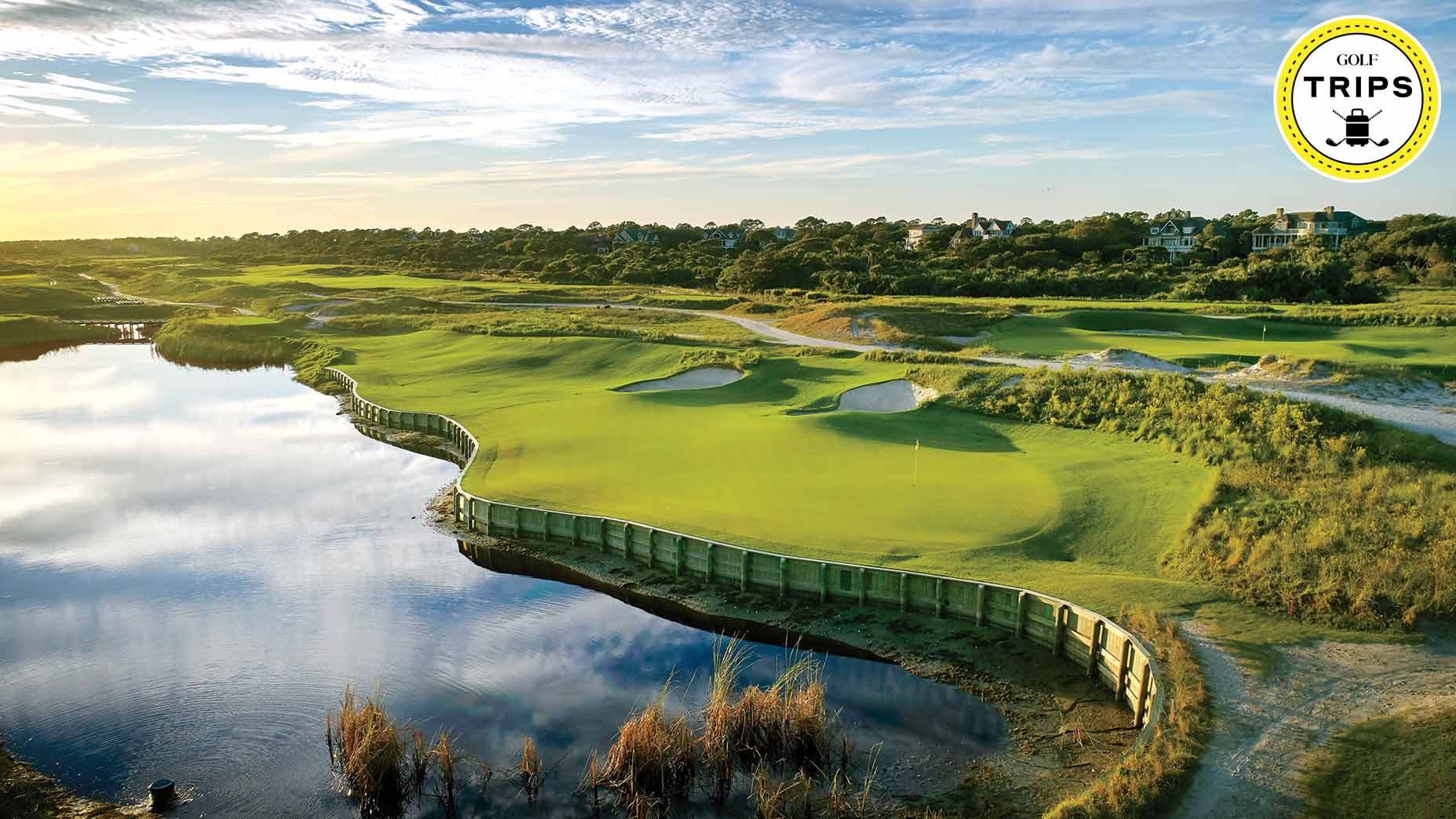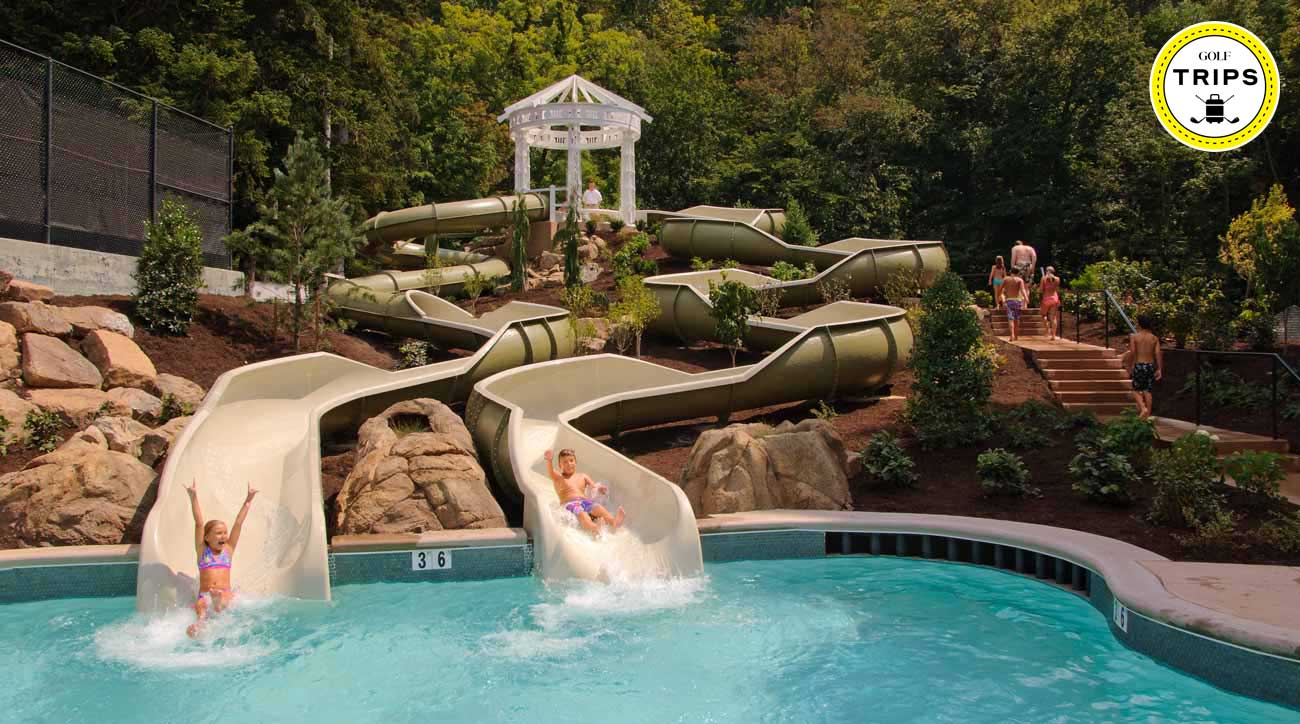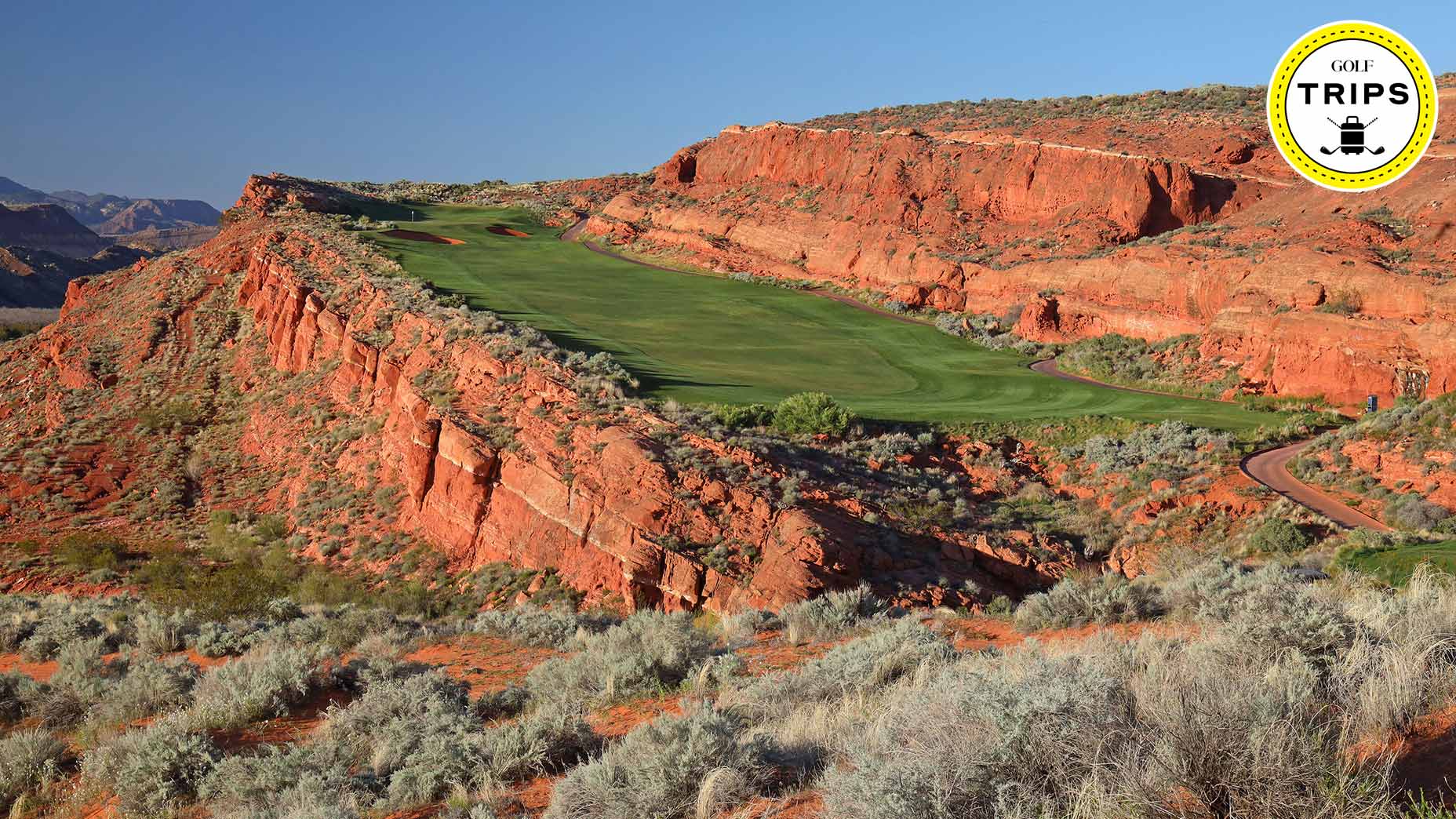All the courses at Bandon Dunes Golf Resort, explained
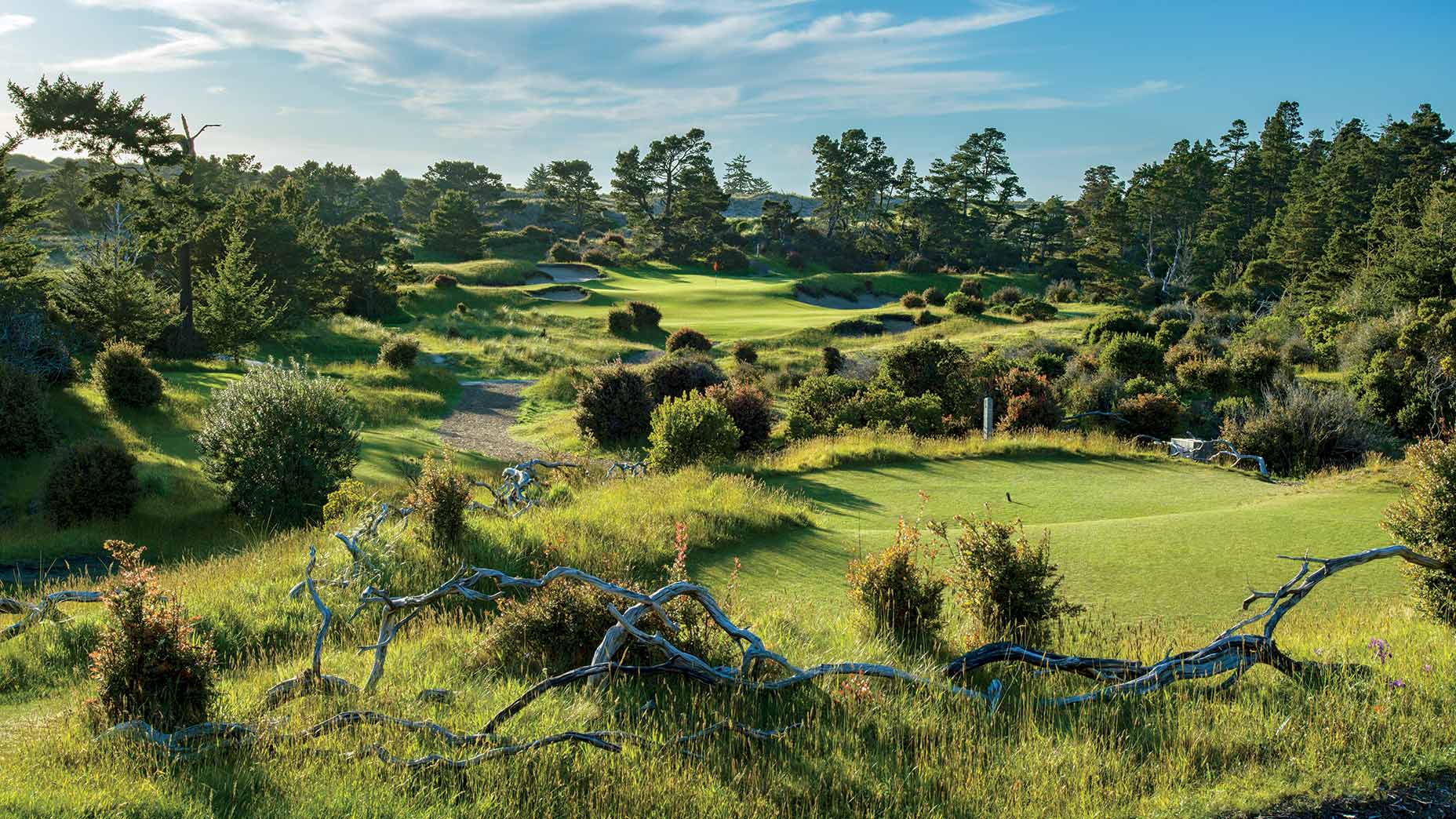
The par-3 17th hole at Bandon Trails, one of five 18-hole courses at Bandon Dunes Golf Resort.
Evan Schiller
Bandon Dunes Golf Resort, which is celebrating its 25-year anniversary this month, has exploded to five 18-hole courses, two short courses — one that’s officially opening right now — and a rollicking putting course.
Here’s a look at Bandon Dunes 25 years later — which appeared in the latest edition of GOLF magazine — but scroll below to get a quick snapshot of the courses and what makes each unique.
BANDON DUNES
David McLay Kidd, 1999; par 72 / 6,732 yds
The original course at Bandon remains its anchor, its first hole lighting out from behind the main clubhouse on a thrilling path, up into the dunes then down toward the coast. With wide landing areas and large, mellowly contoured greens, McLay Kidd’s design can be forgiving, but it has also held up to elite USGA competitions.
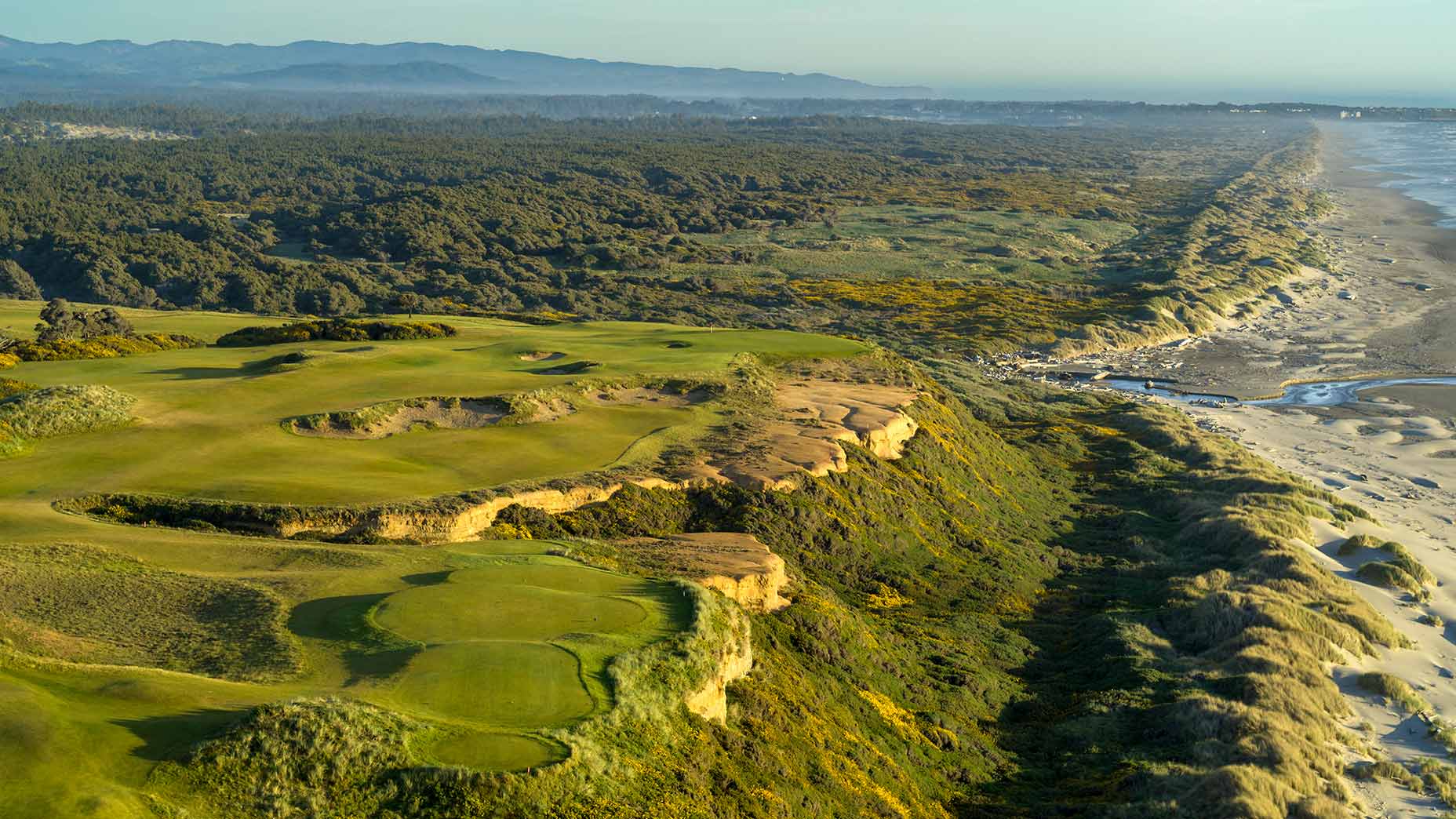
PACIFIC DUNES
Tom Doak, 2001; par 71 / 6,633 yds
When it opened in 2001, this unconventional Doak design, with a back nine that starts with consecutive par 3s, transformed its architect from a cult darling into a modern minimalist star. It also proved Keiser’s mantra — “One course is a curiosity, two courses is a destination” — true, providing the resort with a one-two punch that magnified its presence on the map.
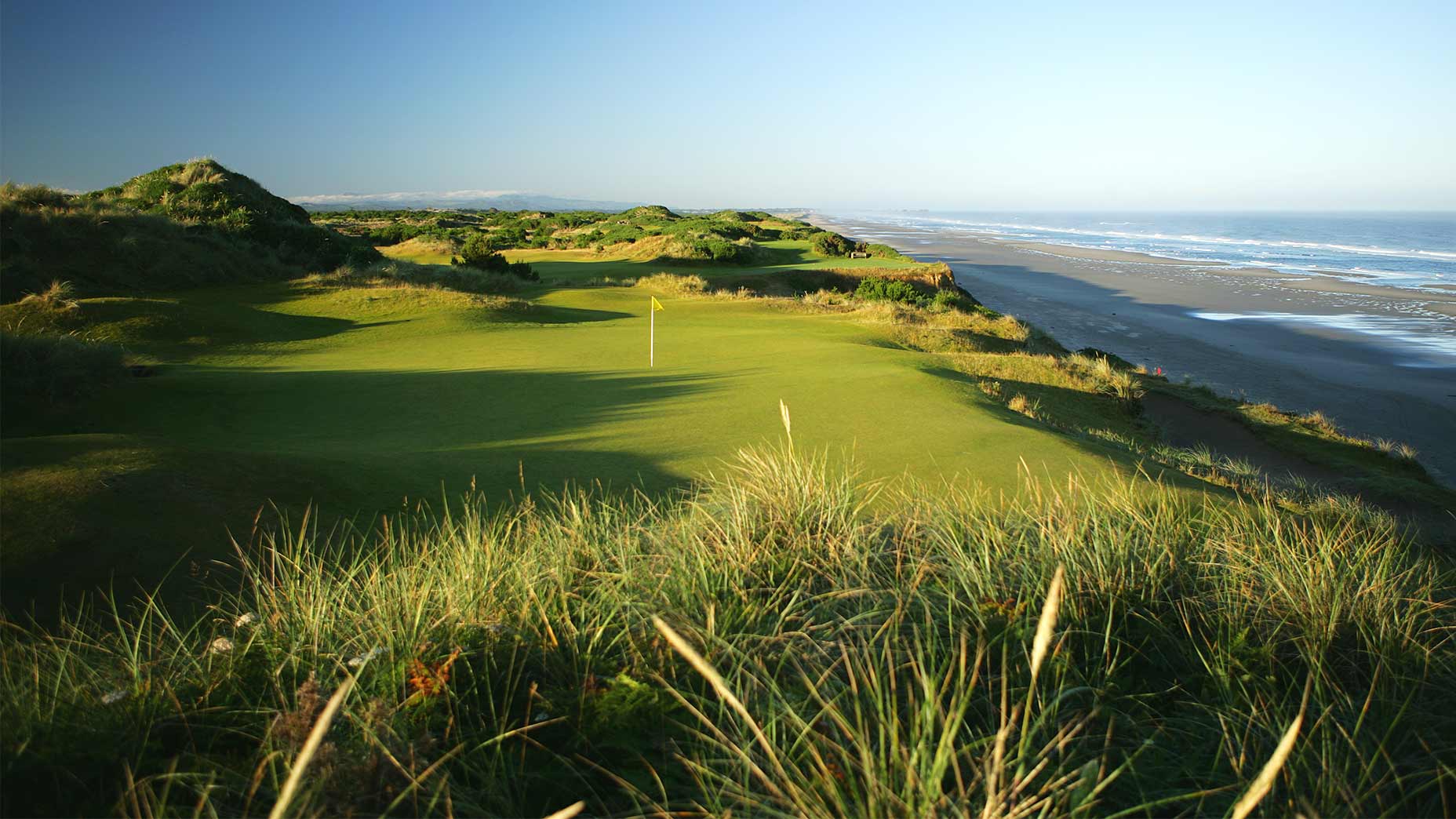
BANDON TRAILS
Bill Coore / Ben Crenshaw, 2005; par 71 / 6,788 yds
The only 18-hole course at the resort that doesn’t kiss the ocean, this Coore-Crenshaw design makes up for its lack of coastline with an enchanting tour of its inland terrain. From dunes to pines to meadows, the backdrops are as varied and intriguing as the shot-making demands, nowhere more than on the par-4 14th, one of Bandon’s most compelling — and polarizing — holes.
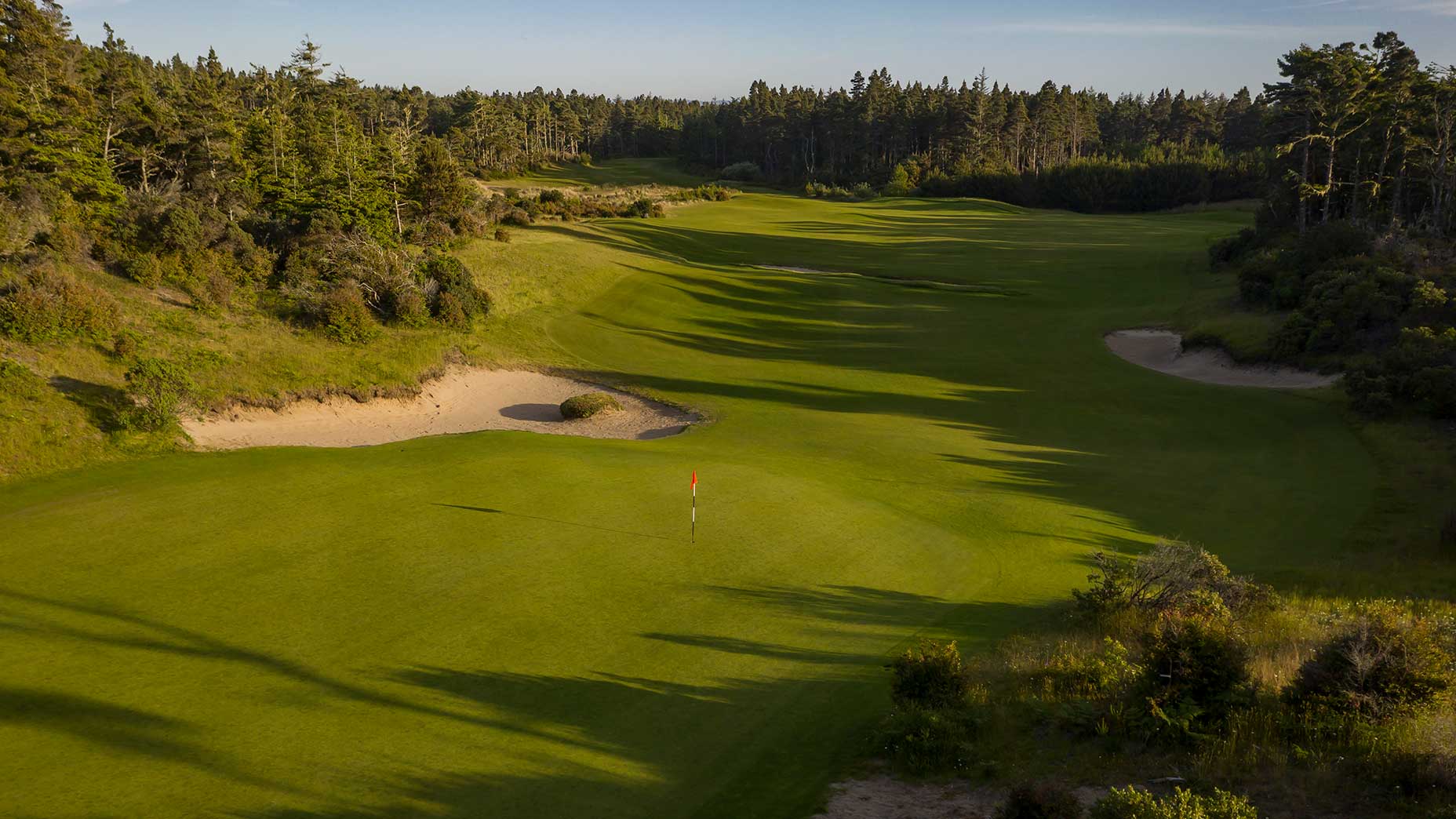
OLD MACDONALD
Tom Doak / Jim Urbina, 2010; par 71 / 6,944 yds
A tribute in both name and form, this Doak-Urbina collaboration draws on a portfolio of template holes made famous in this country by the Golden Age giant Charles Blair Macdonald. The Redan. The Long. The Short. The Eden. There’s even a hat tip to the Road Hole at St. Andrews on a course that plays, in true links fashion, on firm, fast fescue turf.
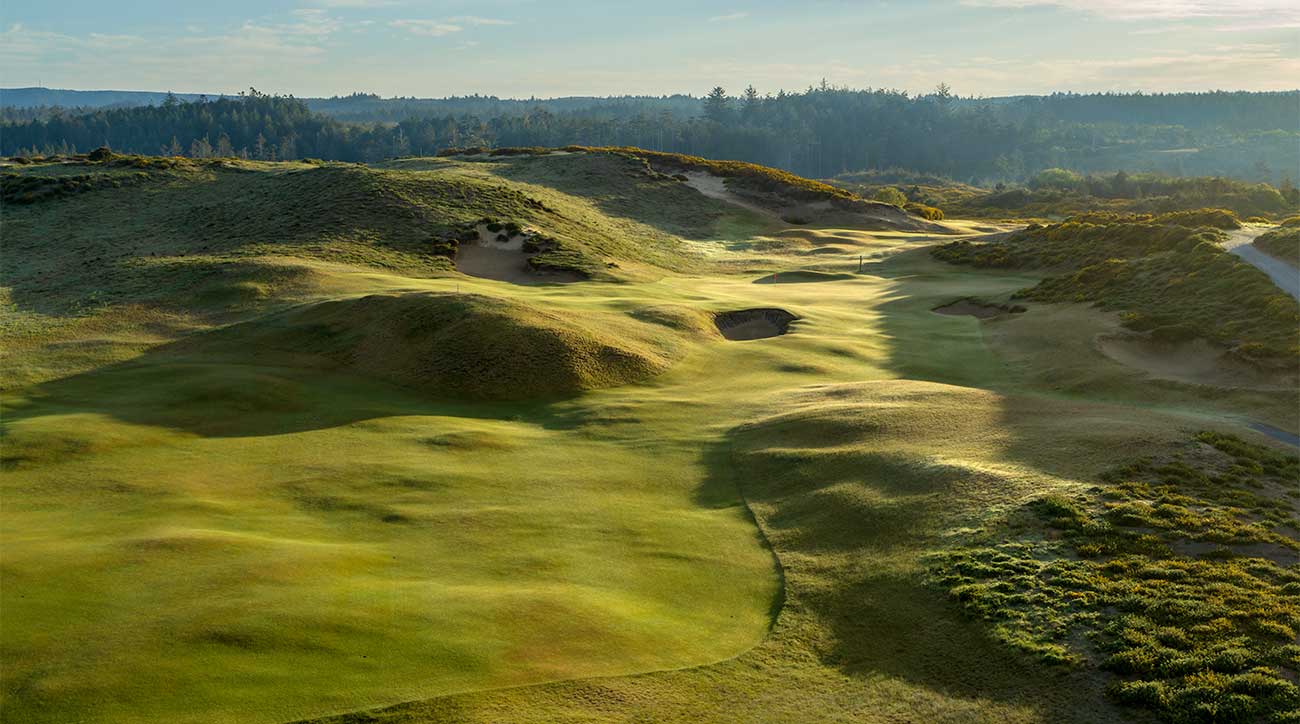
SHEEP RANCH
Bill Coore / Ben Crenshaw, 2020; par 72 / 6,636 yds
The smallest 18-hole course at the resort also features the longest stretch of coastline, roughly a mile of seaside bluffs. On this site, which is also the windiest on the property and, partly for that reason, has no sand bunkers, Bill Coore’s inventive routings squeeze every drama from the ocean, bringing it into play on several tees shots and into view on all 18.
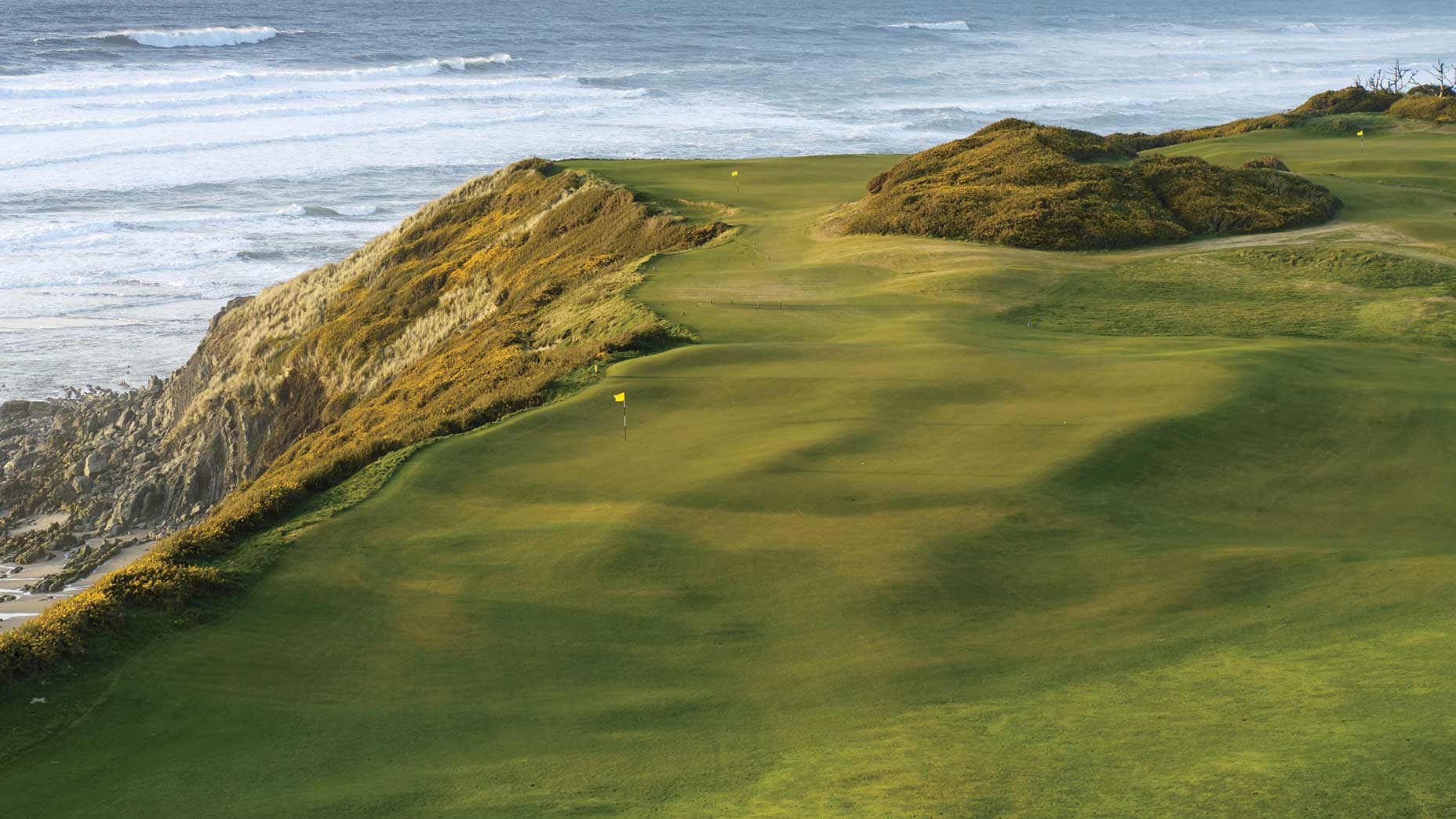
BANDON PRESERVE
Bill Coore / Ben Crenshaw, 2012; par 3 / 1,609 yds
Like many trends in the modern game, the short-course craze traces back to Bandon. Built in 2012, this 13-hole par-3 design by Coore and Crenshaw captures the beauty of the property in miniature, with no shot longer than 150 yards and ground-game options that include the local custom of playing the final hole with only putter.
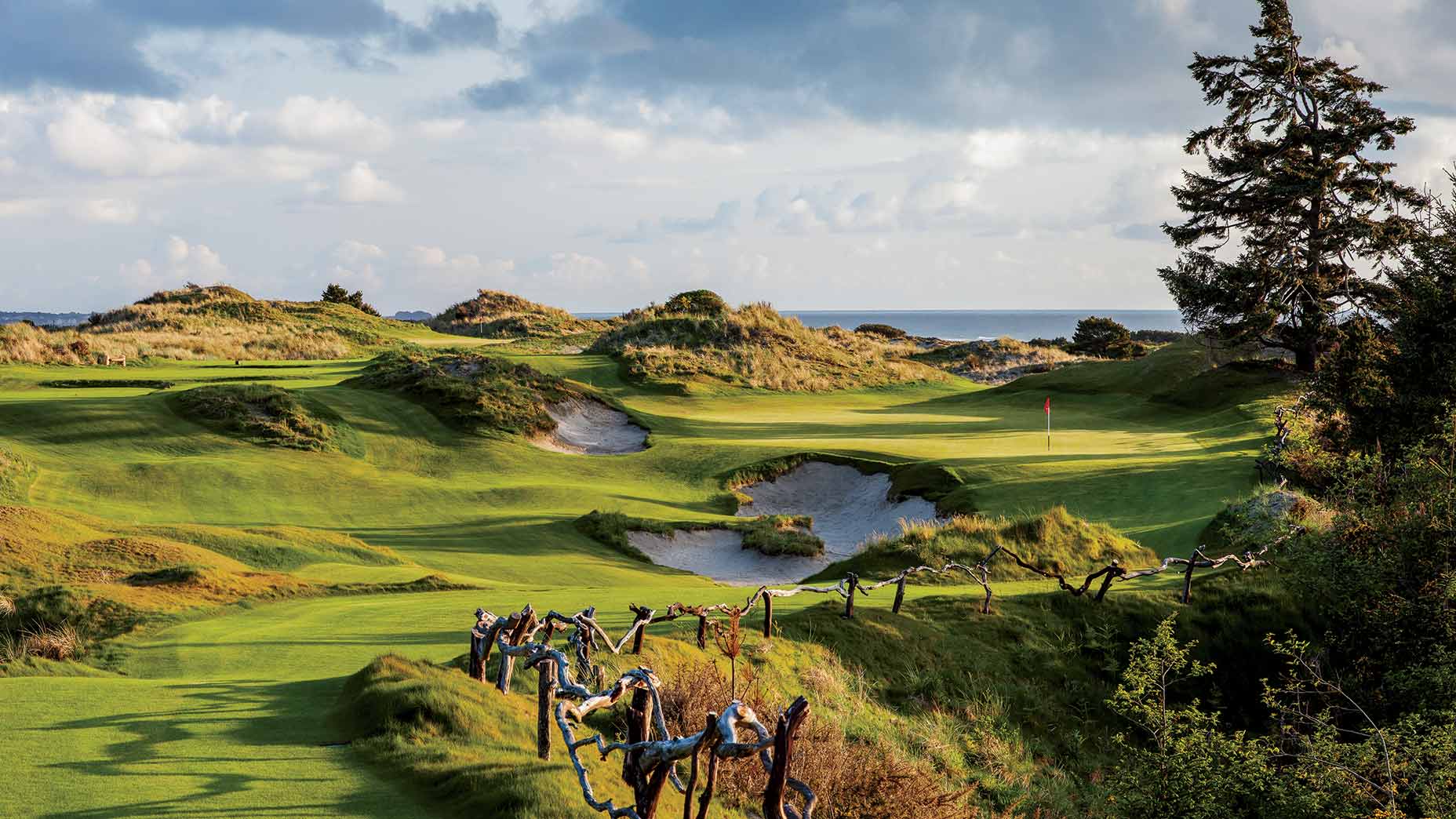
THE PUNCHBOWL
Tom Doak / Jim Urbina, 2014; 18-hole putting course
Drive for show, putt for free. There is no charge to play this 100,000-square-foot nod to the Himalayas putting course at St. Andrews, situated to the left of the first tee at Pacific Dunes. Designed by Doak and Urbina and open from dawn to dusk, it is filled with beguiling humps and hollows, and its routing never gets old because the staff alters it every day.
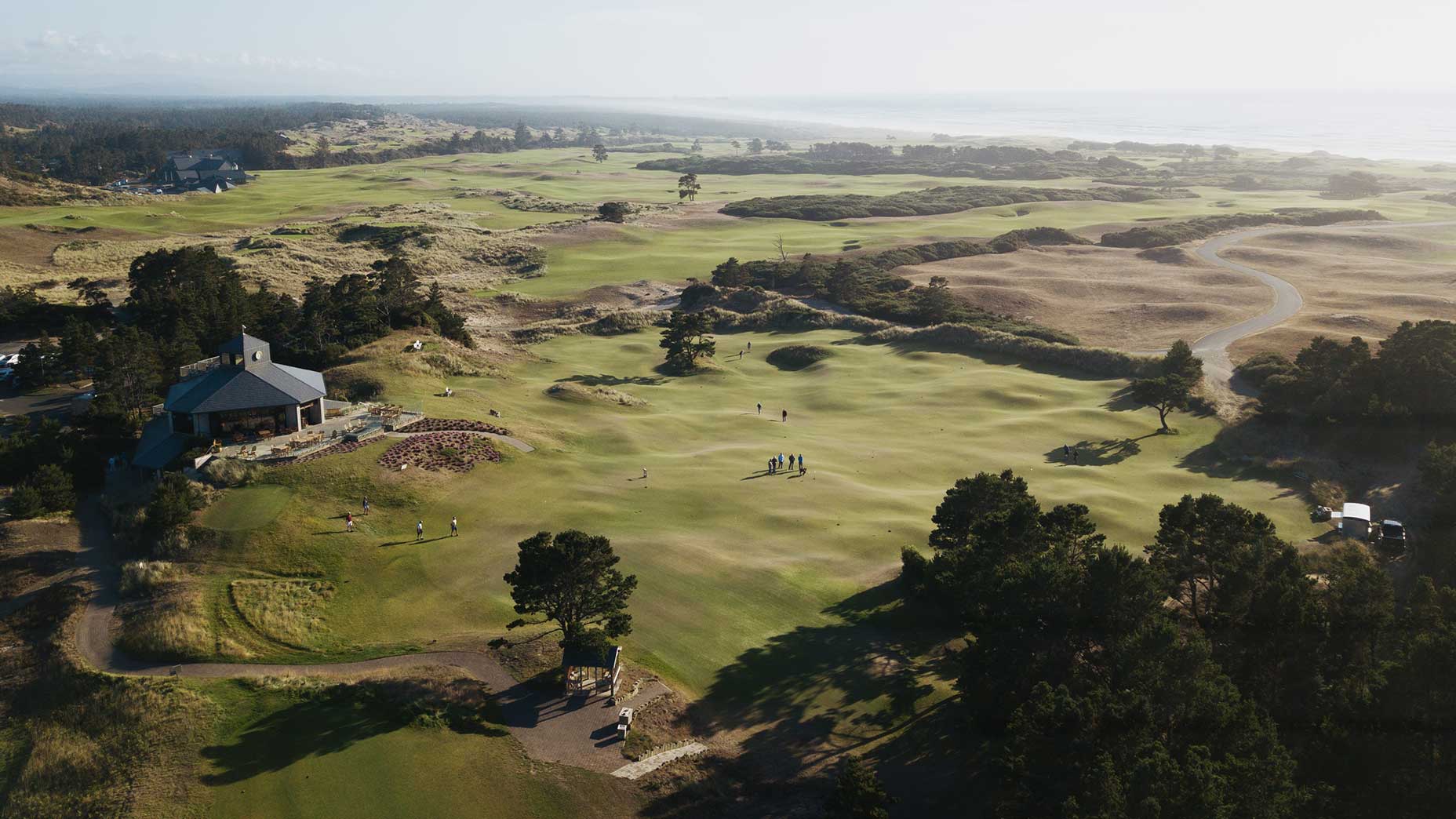
SHORTY’S
Dave Axland, Keith Cutten, Rod Whitman, 2024; par 3 / 1,997 yds
On a site heaving with tall, tightly clustered dunes, Whitman, Axland and Cutten first drafted a 12-hole course, only to realize the canvas encouraged more. Their final design stitched 19 holes, ranging from 60 to 160 yards, into the folds. With the course’s arrival, the original Shorty’s, a pitch-and-putt adjacent to the resort’s practice facility, has been renamed Charlotte’s Par 3.
